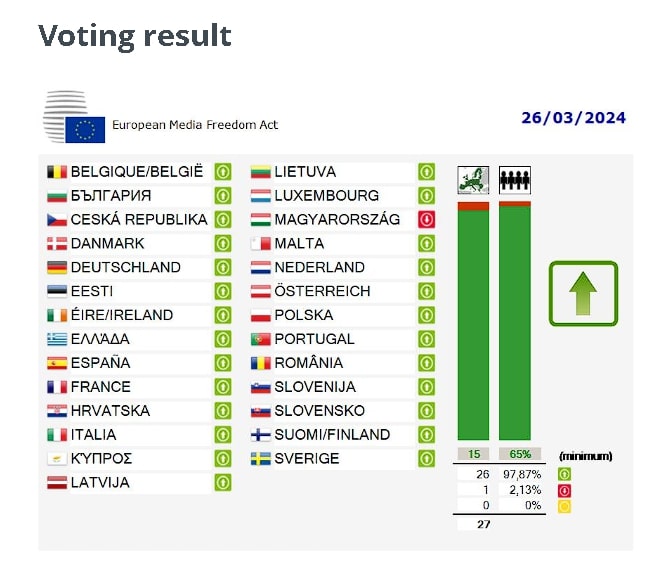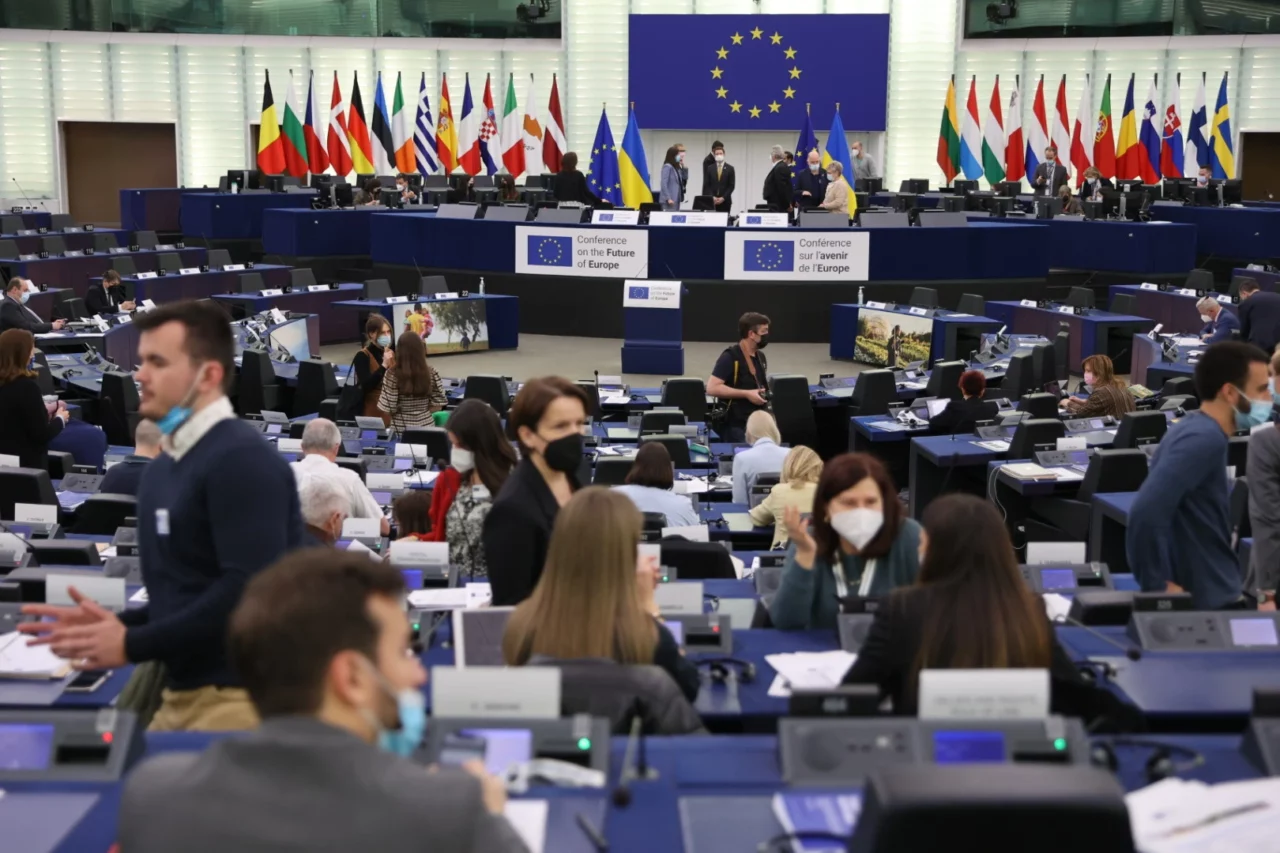European Union’s media freedom regulation only vetoed by Hungary

The Council of the European Union recently approved a new EU regulation on media freedom. With 26 out of 27 member states backing the regulation during a Council meeting of agriculture ministers, Hungary stood alone in opposition.
Back in January, the Hungarian government was the only country that rejected the preliminary agreement with the European Parliament, which had already ratified the legislation weeks prior. The Council statement indicated that the final steps, including signing and publication in the EU’s Official Journal, are pending before the law takes effect, with a 20-day grace period thereafter – according to Telex.

During a heated debate in the European Parliament, a member of Hungary’s Fidesz party, Andrea Bocskor, vehemently criticised a proposed media regulation, labelling it as a form of censorship imposed by Brussels.
Bocskor argued that the regulation seeks to exert control over member states’ media without considering their unique characteristics, potentially leading to sanctions and limiting certain content. She claimed that the regulation aims to promote only the “voice of Brussels” while suppressing national and conservative views, portraying it as a tactic to undermine the political right ahead of the forthcoming European elections in June.
In October, Věra Jourová, Vice-President of the European Commission, highlighted Hungary’s media landscape as a driving force behind the initiation of certain legislation. While acknowledging the Commission’s limited direct influence over Hungary’s affairs, she stressed the importance of preventing the monopolisation of information witnessed there from spreading to other regions. The Vice-President stated the following regarding the situation:
The whole tendency in Hungary to monopolise information is something we don’t want elsewhere.
The regulation
The regulation’s core objective is to shield journalists and editors from undue pressure by authorities. It explicitly prohibits compelling them to disclose sources through coercive measures such as detention, sanctions, searches or monitoring software.

Surveillance tools like Pegasus can only be used after authorisation by an independent judicial body based on reasonable suspicion of a punishable offence. Additionally, individuals under surveillance must be duly informed of their rights in such cases.
Moreover, the regulation aims to guarantee transparency regarding media ownership and its potential impact on news content. Ownership details of all media companies and news agencies, irrespective of their scale, must be recorded in a publicly accessible national database. This database should explicitly indicate whether the state holds a direct or indirect stake in the media entity.

Companies are required to transparently report any public funds received, including those from public advertising and financial support. This reporting should include both the total annual amount received and a detailed breakdown of costs per media outlet. Media firms and online platforms are eligible for public funding under fair, proportional and non-discriminatory condition.
Read also:
- Diplomatic scandal! Former Brazilian President Bolsonaro was hiding in the Hungarian Embassy – HERE
- Foreign Minister: Central Europe fully backs Hungarian EU Presidency’s expansion plan – HERE
Source:






